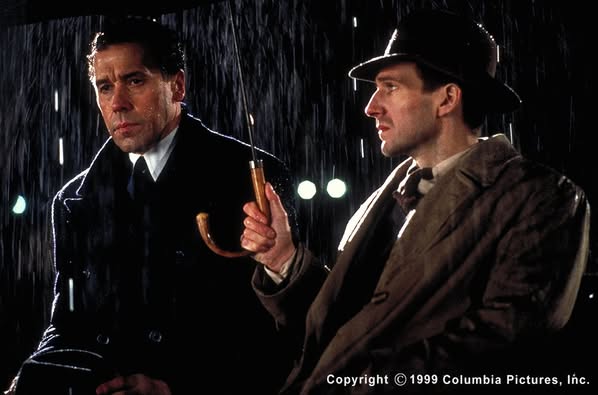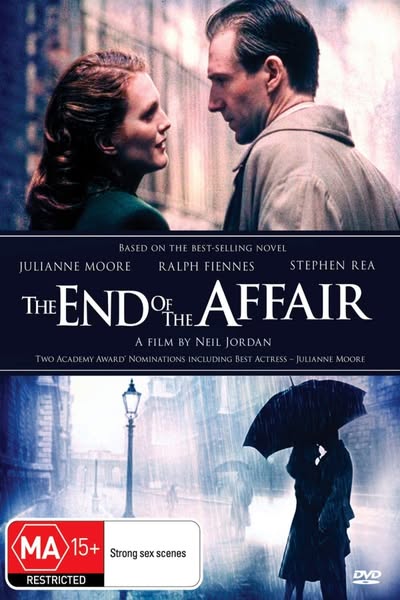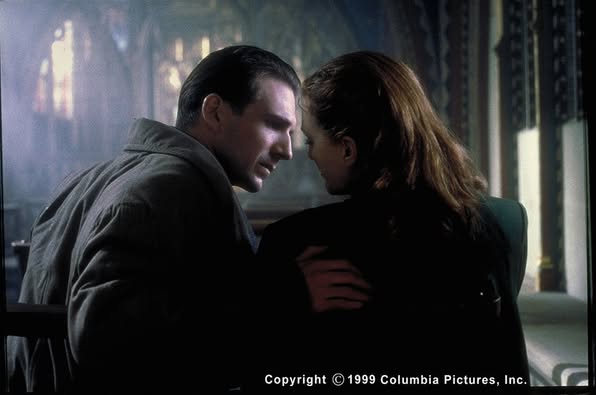The End of the Affair (1999)

The End of the Affair (1999) is a romantic drama film directed by Neil Jordan, based on the 1951 novel of the same name by Graham Greene. The film stars Ralph Fiennes, Julianne Moore, and Stephen Rea, and explores themes of love, faith, and the complexities of human relationships against the backdrop of post-World War II London.
Set in the late 1940s, the story follows the passionate affair between Maurice Bendrix (Ralph Fiennes), a writer, and Sarah Miles (Julianne Moore), the wife of a civil servant, Henry (Stephen Rea). Their love story unfolds with intensity, marked by both ecstasy and turmoil. The narrative is framed by Bendrix’s reflections on their relationship, capturing the deep emotional bonds and the eventual heartache that ensues.

The film delves into the complexities of love and desire, as Bendrix grapples with feelings of jealousy and insecurity. When Sarah abruptly ends their affair, citing a newfound faith in God, Bendrix is left heartbroken and confused. This decision leads him to investigate the reasons behind her change of heart, exploring the intersections of love, faith, and human frailty.
Julianne Moore delivers a compelling performance as Sarah, portraying her character’s internal struggles and moral dilemmas with depth and nuance. Ralph Fiennes brings intensity and vulnerability to Bendrix, embodying the character’s passion and desperation. Stephen Rea’s portrayal of Henry adds a layer of poignancy, illustrating the complexities of love and betrayal.

The film is beautifully shot, with cinematography by Roger Pratt that captures the atmospheric charm of post-war London. The visual style enhances the emotional weight of the story, juxtaposing the lush romance with the stark realities of the characters’ lives.
The End of the Affair explores profound themes of faith, loss, and the nature of love. It raises questions about the impact of external circumstances on personal relationships and the struggle between passion and morality. The film’s emotional depth resonates with viewers, inviting them to reflect on the complexities of love and the often-painful choices that accompany it.

Upon its release, the film received generally positive reviews, with particular praise for the performances of the lead actors and its faithful adaptation of Greene’s novel. It stands as a thoughtful exploration of love’s transient nature and the enduring questions of faith and devotion.
In conclusion, The End of the Affair is a poignant and beautifully crafted film that captures the intricacies of love and the human experience. With strong performances, evocative cinematography, and a compelling narrative, it invites viewers to explore the depths of passion, faith, and the choices that shape our lives. Its exploration of love’s complexities makes it a memorable entry in the genre of romantic drama.











